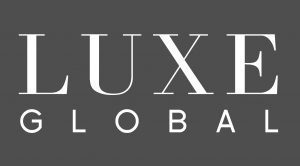Since June of 2017, China’s new Ministry of Environment has been cracking down on factories that they consider “heavy polluters’. The most recent factory audits have led to massive crackdowns and the shutdowns of tens of thousands of Chinese factories; some temporarily (4-6 weeks), while others permanently. Many suppliers have had no choice but to raise prices of their manufactured goods to reflect the pressures from their government and overhead expenses, such as accounting, advertisement, and insurance costs, during forced closure periods. Why the hard stance? The Chinese government is taking a firm position to make sure that their factories are compliant with environmental laws because it believes that the environment has been severely polluted by the continued operations of factories in their country over the years. Previously when policies were passed there was little to no compliance as factories continued to operate in their old polluting ways.
Affected Industries:
Textiles
Rubber
Leather
Chemicals
Carbon
Metal
Coating
Plastic
Dying, Painting, and Printing processes
Affected Regions:
Shandong
Henan
Hebei
Tianjin
Beijing
Zhejiang
Jilin
Jiangsu
Sichuan
Guandong
5 Tips for Offshore Sourcing Products from China
The following are 5 things to consider when offshore sourcing products from China in light of the new regulations in place:
1. Hire an Agency to Represent You
To conduct business overseas in China, you will benefit from the services of an “intermediary”, an agent, who can represent your interests, provide the right introductions and negotiate the best terms of the agreement. An experienced and well-seasoned agency will have profiled different factories in China and have determined which ones are in compliance and are environmentally cognizant. It’s always important to obtain references of past clients from the intermediary agency.
2. Equip Yourself with the Essential Knowledge
You should never rely solely on someone as an exclusive source of information. It is important to show resilience by equipping yourself with the requisite knowledge of how to source imported products for your business and the policies that are in place in the host country. This will ensure that whatever standards you have set are not compromised by anyone – the manufacturer, the agency, or friends.
You will be your own best advocate only if you understand the processes and the environment in which the supplier operates. By speaking to a number of vendors and intermediaries, you will become familiar with the jargon, the products available, as well as the expertise of some of the available suppliers.
3. Work with Certified Factories
Product certification compliance should never be taken for granted when importing products from China into North America, especially when you are trying to adhere to the latter’s standards. Going through this essential step will ensure that the materials used to make the products are certified new and suitable for the sourced items. As well it will ensure that the packaging being used for transportation is appropriate to avoid any damage during shipping.
It’s important to note that the importer, not the factory itself, is always responsible for making sure that product certification and consumer safety compliance is adhered to. It is nearly impossible for local government authorities to enforce compliance in a foreign country. This puts a lot of weight on the importers shoulders and that is why we recommend hiring an intermediary to do the research for you.
4. Agree to high-dollar purchase
If you do business with one or two suppliers rather than many, there are numerous benefits to it, including lower costs. But before you give your business to a few suppliers, consider the increased risks of doing so, especially with the new regulations in place in China.
5. Be the “Purple Cow”
To avoid competitors from copying your product ideas, we highly recommend reading Seth Godin’s book Purple Cow. The “Purple Cow” analogy is a simple one. Imagine driving past a herd of black & white cows, you would not pay any attention because they are nothing special. Now imagine seeing a purple cow, would that not catch your attention? The most important point to take away from this analogy is that you want your product to be like the purple cow and to hold a competitive advantage so that you will attract buyers that cannot go anywhere else for what you offer and avoid copycats.
About Luxe Global:
Luxe Global is the chosen partner for many large and small companies who need assistance when buying/sourcing items from Asia. At Luxe, we have the most talented, tenacious and hard-working team, that are entirely focused on quality, accountability, service and integrity. This allows us to offer a customer experience second to none. With over 45 combined years of experience, we understand the entire sourcing process, and have talented people (working exclusively for Luxe) represented in North America and Asia.
To mitigate the effect this is having on our clients, we have identified an opportunity to build a sustainable path toward continued and future success.
We are currently in a position that allows us to continue to operate as a low-cost supplier, and we would like you, to benefit from this advantage.




Leave a Reply
Want to join the discussion?Feel free to contribute!